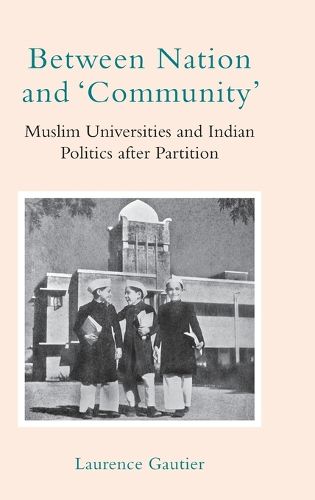Readings Newsletter
Become a Readings Member to make your shopping experience even easier.
Sign in or sign up for free!
You’re not far away from qualifying for FREE standard shipping within Australia
You’ve qualified for FREE standard shipping within Australia
The cart is loading…






This book proposes a political history of Muslim universities in post-independence India, from 1947 to the 1990s. Based on a wide range of sources in English and in Urdu, it highlights the central role that these educational institutions played in the debates on national integration, secularism, minority rights and Muslim backwardness. After independence, Muslim universities found themselves at a critical juncture between central state authorities and India's Muslim population. As public and Muslim institutions, they were to participate in nation-building as much as in the development of the Muslim 'community'. By closely looking at the relation between these institutions and state authorities, the book teases out the ambiguities of the state's Muslim policy. It also examines, in turn, how university members responded to this policy and developed competing conceptions of Muslim identity and citizenship, which structured the wider public debates on Muslims' status in post-partition India.
$9.00 standard shipping within Australia
FREE standard shipping within Australia for orders over $100.00
Express & International shipping calculated at checkout
This book proposes a political history of Muslim universities in post-independence India, from 1947 to the 1990s. Based on a wide range of sources in English and in Urdu, it highlights the central role that these educational institutions played in the debates on national integration, secularism, minority rights and Muslim backwardness. After independence, Muslim universities found themselves at a critical juncture between central state authorities and India's Muslim population. As public and Muslim institutions, they were to participate in nation-building as much as in the development of the Muslim 'community'. By closely looking at the relation between these institutions and state authorities, the book teases out the ambiguities of the state's Muslim policy. It also examines, in turn, how university members responded to this policy and developed competing conceptions of Muslim identity and citizenship, which structured the wider public debates on Muslims' status in post-partition India.